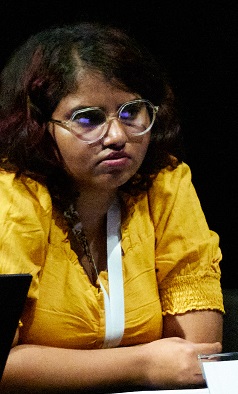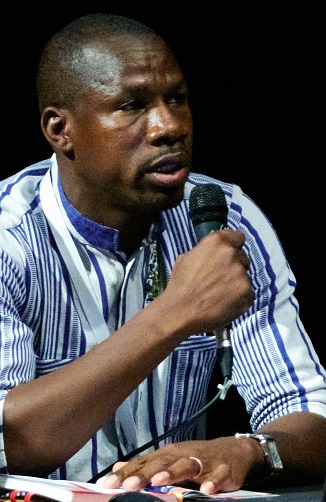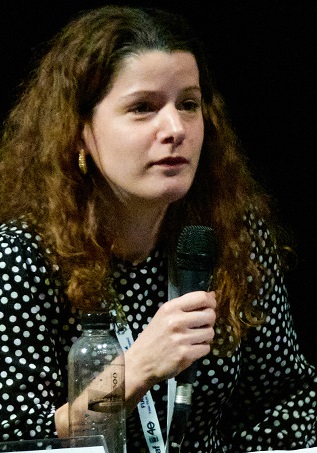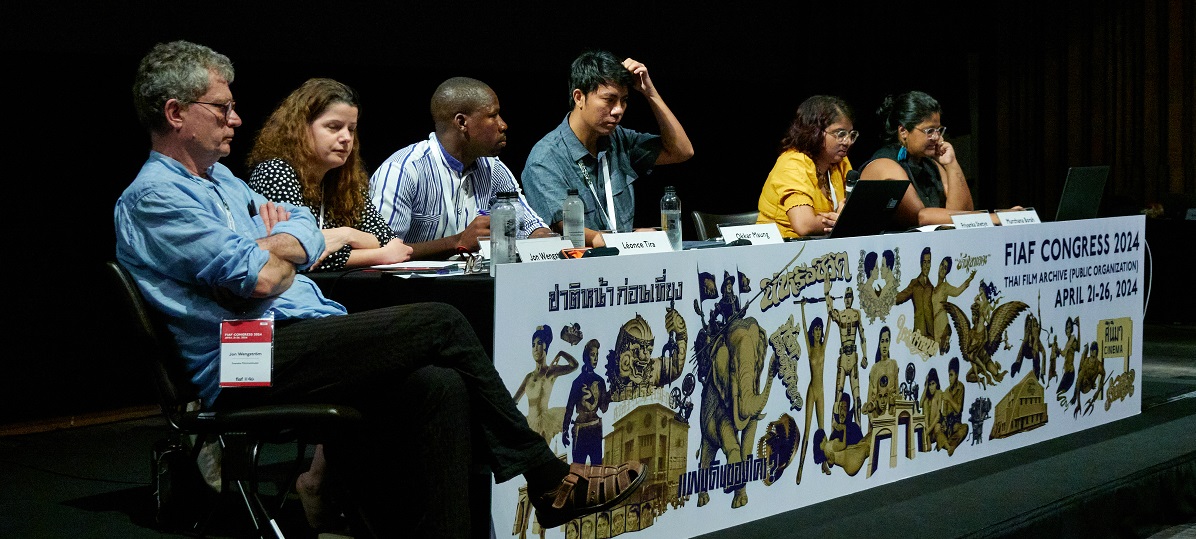©Mikko Kuutti
2024 Bangkok Symposim
Session 4 - Tales from the Vault : Stories of Institutional and Special Collections Projects
Bangkok, 23 April 2024
Please do not publish or re-use in any way any of these documents without prior permission of the speakers.
10 Years of Film Heritage Foundation : Triumphing Over The Odds
Murchana Borah (Film Heritage Foundation)
Priyanka Shetye (Film Heritage Foundation)
India, with its rich and prolific film heritage spanning over a century and producing more than 2,000 films annually in about 55 languages, faces significant challenges in film archiving. Despite this legacy, the country’s film preservation history is relatively recent and inadequate, with only a fraction of early films surviving. The National Film Archive of India (NFAI), established in 1964, and the private Film Heritage Foundation (FHF), founded in 2014, are the primary institutions dedicated to this cause. FHF emerged from the realization of the extensive loss of India’s film heritage, highlighted by Shivendra Singh Dungarpur’s film "Celluloid Man". Despite substantial challenges, including lack of resources and trained archivists, FHF has achieved significant milestones in preservation, training, and restoration, including films featured at Cannes. This presentation will explore FHF’s establishment, innovative approaches to preservation, and seek dialogue with other under-resourced film archives globally to share strategies for preserving film heritage.


A Blurry Archiving Journey during When Politic and Pandemic Crises and Changes Took Place in Myanmar
Okkar Maung (Save Myanmar Film)
Since its inception in 1920, Myanmar's film industry has suffered significant losses, with 99% of black-and-white films lost or decayed. In 2017, Save Myanmar Film (SMF) was founded by young filmmakers to preserve and restore Myanmar's classic films and related materials. SMF has achieved notable milestones, including the inclusion of “Emerald Jungle” in the UNESCO Regional Register and successful restorations of films like “The Daughter of Japan” and “General Cartoon” in collaboration with the Thai Film Archive. Despite these successes, SMF faces severe challenges due to the COVID-19 pandemic and political instability in Myanmar, which have halted support and collaborations. The organization is now grappling with whether to prioritize film preservation amid ongoing crises or to align with the current political context. The presentation seeks guidance from archival experts on how to navigate these difficulties and continue SMF’s mission.

Reinventing Collections, Participating in the Fight Against Insecurity and Terrorism in the Sahel Countries
Léonce Tira (Cinémathèque Africaine de Ouagadougou)
The Cinémathèque Africaine de Ouagadougou, set up in 1989 by the Burkina Faso government and African filmmakers, preserves more than 12,000 films on a variety of media, constituting a precious memory of African cinema. Faced with the challenges of insecurity and terrorism in the Sahel countries, the film library, through its archives, can play a crucial role in combating these crises. This presentation focuses on the importance of film archives in the global South, in particular their role in promoting social cohesion and combating insecurity. This study looks at how films on insecurity and terrorism available at the film library can be used to reinforce these efforts.

Archives Congovox
Anne Davignon (Wallonie Bruxelles)
In 2022, the Cinémathèque of the Fédération Wallonie-Bruxelles in Belgium acquired the Congovox archives, which include 1,500 film reels documenting a decade of political, cultural, and social events in Congo from 1964 to 1974. These films, created by Congolese journalists but edited in Belgium, reflect the complex colonial history between Belgium and Congo. Despite challenging conditions and the poor state of the films, the Cinémathèque is committed to preserving this significant audiovisual heritage. The collection, currently being digitized, may eventually be recognized by UNESCO’s Memory of the World program, highlighting its importance and ensuring its preservation for future generations.







